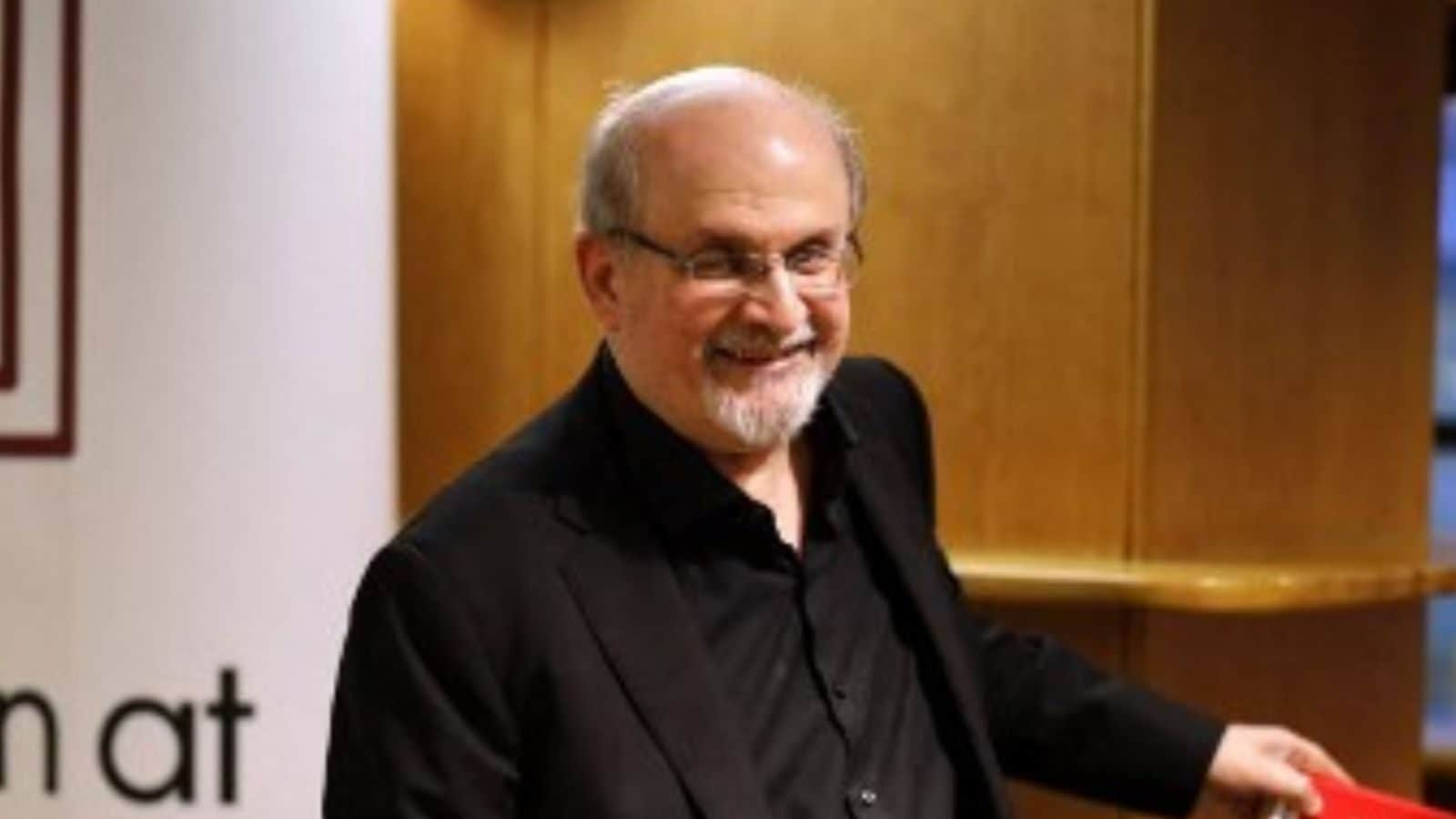Salman Rushdie: Magic Realist’s Life in Death Threats, Decade in Hiding from Religious Intolerance
Master of magic realism but haunted by his own reality, known for his controversial writings and opinion against Islam despite death threats and burdened by a fatwa that pushed him into hiding for a decade: the life story of British author Salman Rushdie is a perfect example of freedom of speech juxtaposed with extremist narratives.
Rushdie, who was stabbed in the neck at a literary event in New York state on Friday, turned 75 in June making him as old as independent India that will mark its 75th year of freedom from British rule this month. It is then, perhaps, ironic that it was Britain that provided him protection when he wanted to go underground after Iranian revolutionary leader Ayatollah Ruhollah Khomeini issued a fatwa, or religious decree, calling for his death soon after his highly controversial novel, The Satanic Verses, was published in 1988.
Life after ‘The Satanic Verses’
Known for his portrayal of post-independence India in his 1981 Booker Prize-winning novel Midnight’s Children, Rushdie gained attention beyond his imagination for The Satanic Verses. But, the novel was considered by some Muslims as blasphemous and disrespectful of the Prophet Mohammed, earning the wrath of Iranians and sending him into hiding for a decade.
Often-violent protests against Rushdie erupted around the world, including a riot that killed 12 people in his birthplace Mumbai. The novel was banned in Iran.
Rushdie was born to non-practicing Muslims and identifies as an atheist today. Even though Iran distanced itself from Khomeini’s decree in 1998, anti-Rushdie sentiment lingers on to this day. As does the bounty of over $3 million on his head. The Index on Censorship, an organisation promoting free expression, said money was raised to boost the reward for his killing as recently as 2016.
In Britain, where he was at school and made his home, Rushdie was granted police protection following the murder or attempted murder of his translators and publishers. He moved houses repeatedly for nearly a decade, unable to tell his children about his whereabouts.
Advocate of free speech
After Iran’s statement to not support his assassination, however, Rushdie began to emerge from his life on the run in the late 1990s. The author continues to be an advocate of free speech but, threats and boycotts continue against literary events that he attends.
His knighthood in 2007 sparked protests in Iran and Pakistan, where a government minister said the honour justified suicide bombings. Notably, he also launched a strong defence of French satirical magazine Charlie Hebdo after its staff were gunned down by Islamists in Paris in 2015.
“I stand with Charlie Hebdo, as we all must, to defend the art of satire, which has always been a force for liberty and against tyranny, dishonesty and stupidity,” Rushdie had said.
The attack on Rushdie then becomes all the more real, as the bounty on his head could not manage to stifle his writing and inspired his memoir Joseph Anton, a name he had taken as an alias while in hiding.
But controversial or not, his richest work to date remains Midnight’s Children where he fuses magic realism with a telling of the events of 1947 during India’s independence and after the Partition. His protagonist, Saleem Sinai, born with telepathic powers on the exact moment when India gained independence reflects Rushdie’s own understanding of events marred by religious extremism.
In his defence of Charlie Hebdo, he had also said, “‘Respect for religion’ has become a code phrase meaning ‘fear of religion’. Religions, like all other ideas, deserve criticism, satire, and, yes, our fearless disrespect.”
Midnight’s Children, which runs into more than 600 pages, has been adapted for the stage and silver screen, and his books have been translated into more than 40 languages. Still prolific, his latest novel Quichotte was published in 2019.
Fixture on the international party circuit
When he emerged from hiding after nine long years, Rushdie became a fixture on the international party circuit. Though he was married three times previously, his fourth marriage to supermodel Padma Lakshmi was most in the limelight. Their tumultuous relationship in the early 2000s was splashed across British tabloids. Rushdie has two children.
In that period of his life, he even appeared in films such as Bridget Jones’s Diary and US television sitcom Seinfeld.
In India, Rushdie attended the English boarding school Rugby before studying history at the University of Cambridge. He initially turned to advertising, coining slogans such as ‘naughty but nice’ for cream cakes, which entered common parlance.
The author now lives in New York and his novel published in 2015, Two Years Eight Months and Twenty-Eight Nights, is set in the city. The book talks about his love for the bustling metropolis and a vision of a global disaster compared to the rise of the Islamic State group.
In an interview to a French channel, he once said, “I’m really sorry that this book ended up coming true, but it did.”
(With inputs from AP and AFP)
Read the Latest News and Breaking News here
For all the latest world News Click Here

